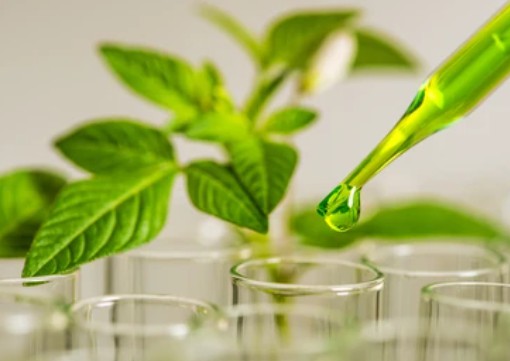Development of Biopesticides
Pesticides play an important role in controlling pests and increasing crop yields. However, the long-term application of large quantities of chemical pesticides has caused a certain degree of environmental pollution, and affected the quality and safety of agricultural products and biodiversity. The development of biopesticides can effectively replace chemical pesticides for the prevention and control of insect diseases. At present, biopesticides refer to natural substances from different sources that can control pests. Compared with chemical pesticides, biopesticides have the characteristics of low toxicity to non-target organisms, easy degradation, low dosage, and high effect, therefore, the development of biopesticides has a good prospect for development.
Lifeasible is an industry leader in the development of biopesticides. Based on our advanced technology platform and experienced team of experts, we offer various of effective solutions for biopesticide development. Our biopesticide solutions play an important role in reducing the use of chemical pesticides and controlling agricultural and forestry insect pests safely and efficiently.

Our solutions
Importance of developing biopesticides
- Environmental sustainability. Biopesticides offer a safer alternative to chemical pesticides. They are typically derived from living organisms or their byproducts, making them biodegradable and posing minimal risks to non-target organisms and ecosystems. By reducing synthetic chemicals dependence, biopesticides contribute to biodiversity preservation and environmental health.
- Reduce chemical residues. One of the primary concerns associated with chemical pesticides is residue persistence on food crops. Biopesticides, on the other hand, degrade faster, leaving negligible or no residue behind. This attribute ensures produce safety, minimizing health risks.
- Resistance management. Conventional pesticides have led to pest populations resistant to them. Biopesticides can play a pivotal role in integrated pest management strategies, as their modes of action differ from chemical pesticides. Incorporating biopesticides into pest control programs combats resistance development and extends chemical pesticide effectiveness.
Characteristics of biopesticides
- Low impact on non-target organisms and are highly selective.
- Safe and non-polluting to the natural ecosystem.
- Effectively control insect pest populations, and play a significant role in suppressing future pest populations.
- Not lead to insect pest resistance, so biopesticides can be used repeatedly in the field.
What do we offer?
- Genetic engineering. Genetic engineering has emerged as a powerful tool in developing insect-resistant crops and enhancing biopesticide effectiveness. Crop plants can be given unique characteristics that resist insect pests. In this method, particular genes for insecticidal proteins, acquired from naturally occurring sources like Bacillus thuringiensis (Bt), are inserted into the genome of the plant. Microorganisms can also be modified using genetic engineering approaches to increase their biopesticidal capabilities. To create insecticidal substances or enzymes that damage insect pests' cuticles or digestive systems, certain genes can be inserted into the genomes of microorganisms.
- Nanotechnology. Encapsulating several biological compounds in nanoparticle systems has been shown to increase their effectiveness against pests, reduce their toxicity to humans and the environment, and minimize losses due to conditions of use. We offer nanotechnology to help develop biopesticides with better insecticidal action, higher environmental safety, and more stable active agents.
- RNA interference. Novel RNA biopesticides are prepared by cell factory or cell-free synthesis methods to produce dsRNAs that can specifically target insects and pathogens (hosts), and can interfere with the translation of key host growth factor mRNAs to efficiently kill pests and diseases.
Our service workflow

Lifeasibleis committed to improving the efficacy of biopesticides, reducing chemical residues, improving the environment and promoting integrated pest management. The solutions we provide for the development of biopesticides will hold great promise for sustainable pest management. If you are interested in us, please feel free to contact us.
For research or industrial raw materials, not for personal medical use!

